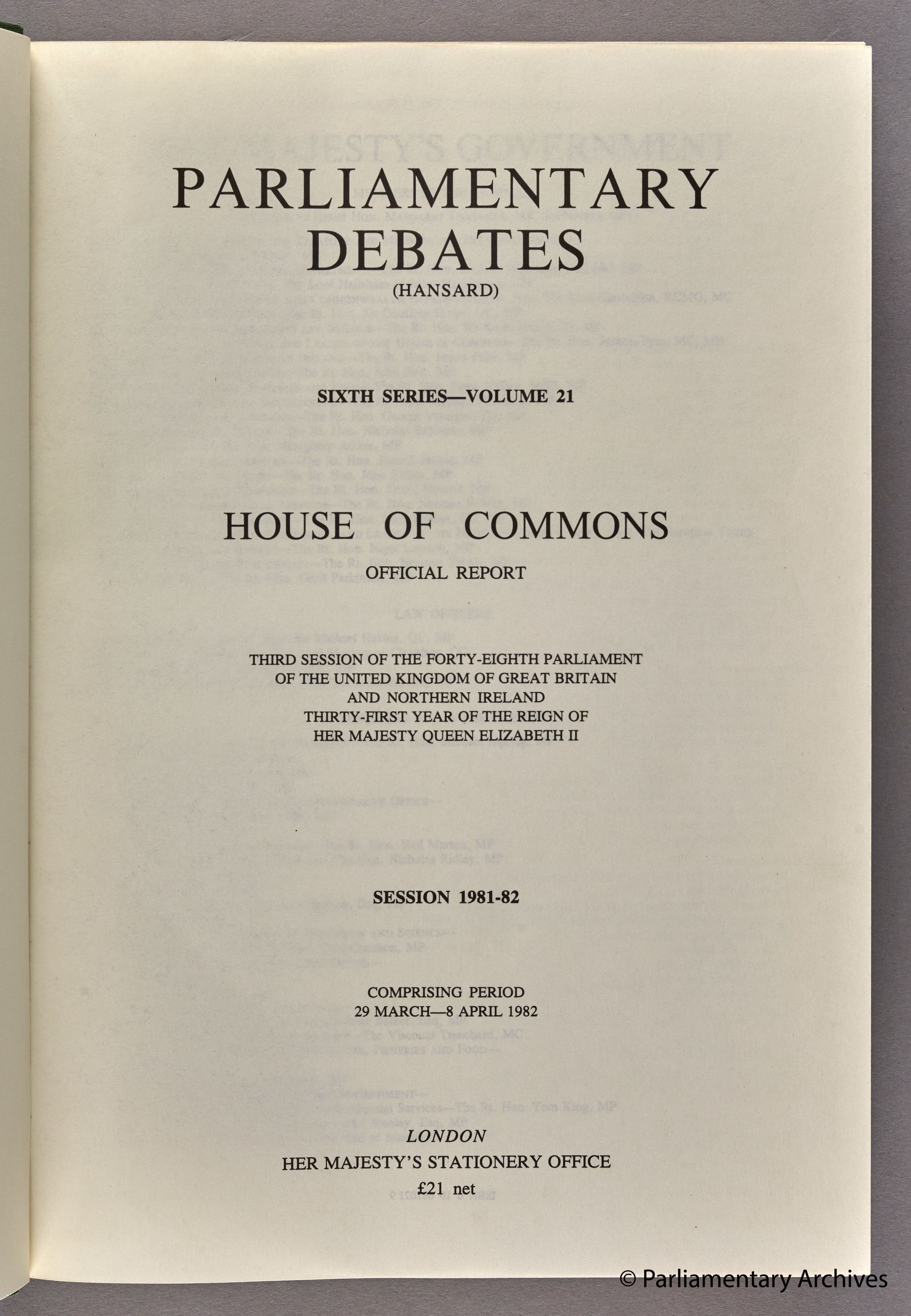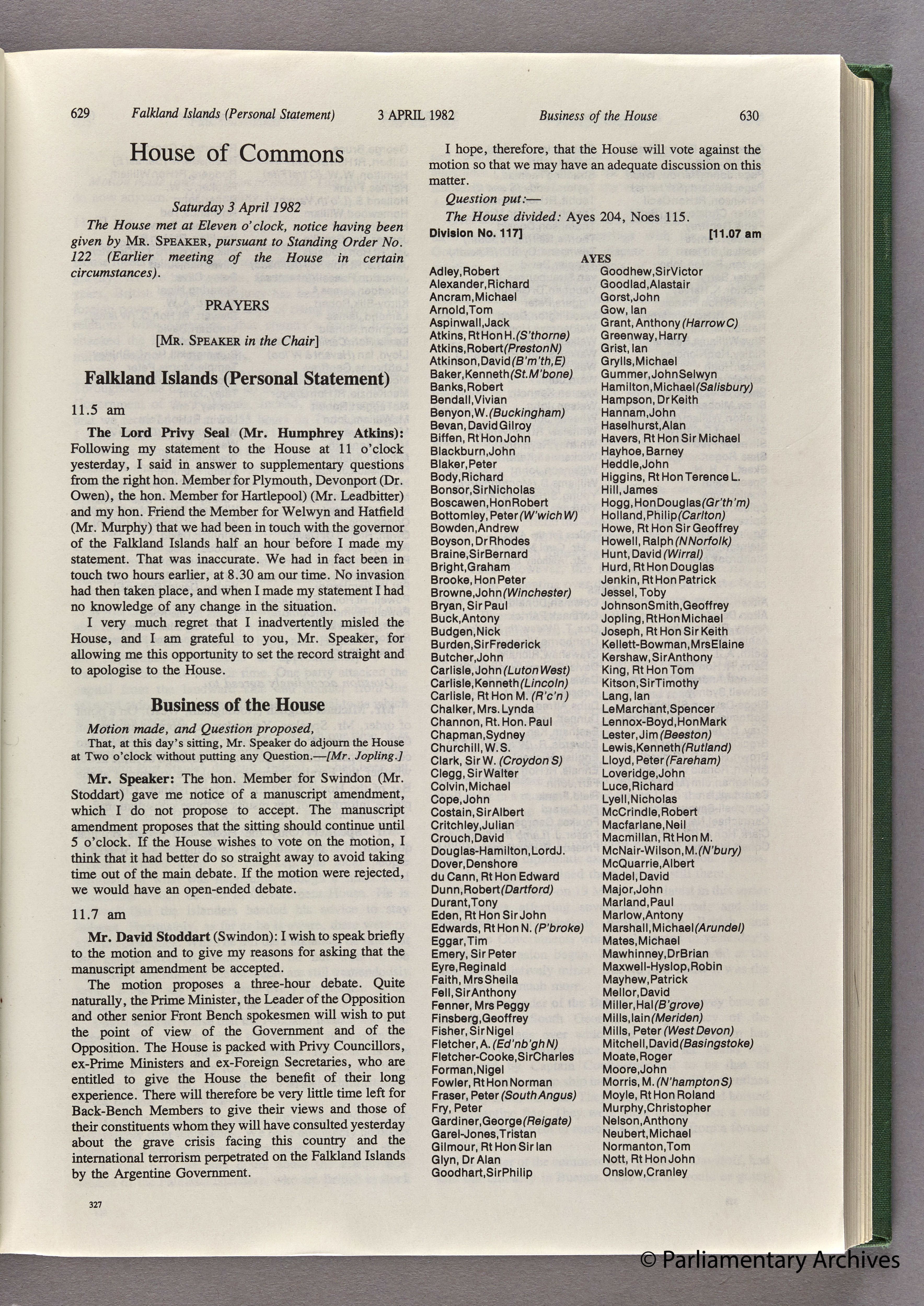Parliament and the Falklands Conflict
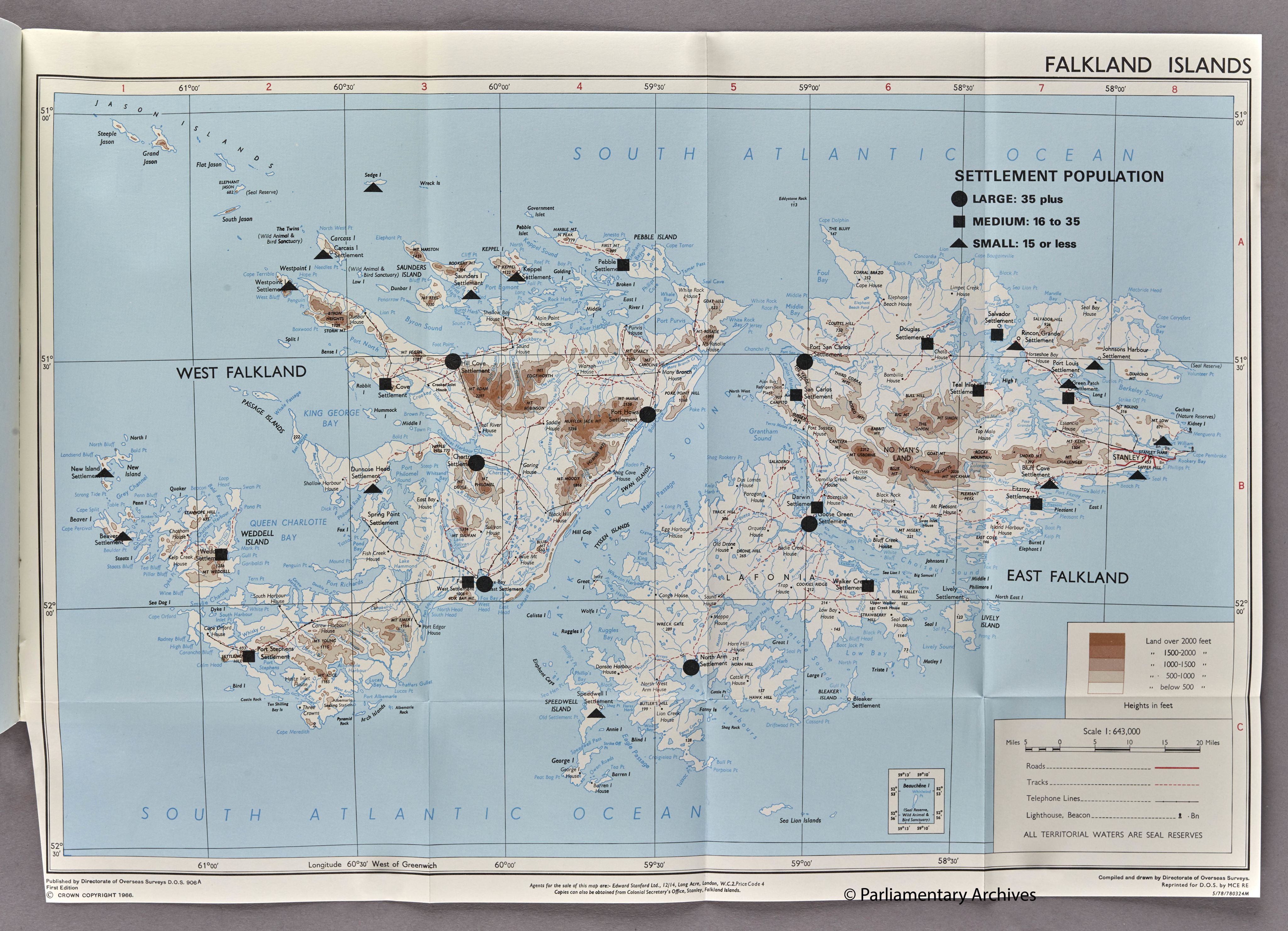
On Saturday 3rd April 1982, the House of Commons and the House of Lords held emergency sessions.
It was the first time they had sat on a Saturday in over twenty-five years.
The session was called to debate what Britain’s next steps should be following the landing of Argentinian forces on East Falkland.
The first task force ships sailed from the UK on 5th April.
Parliamentary debates became one of the main sources of information on the Falklands conflict for the public and press.
The Commons’ Speaker, George Thomas, sat in the Chair for every minute of every debate about the issue.
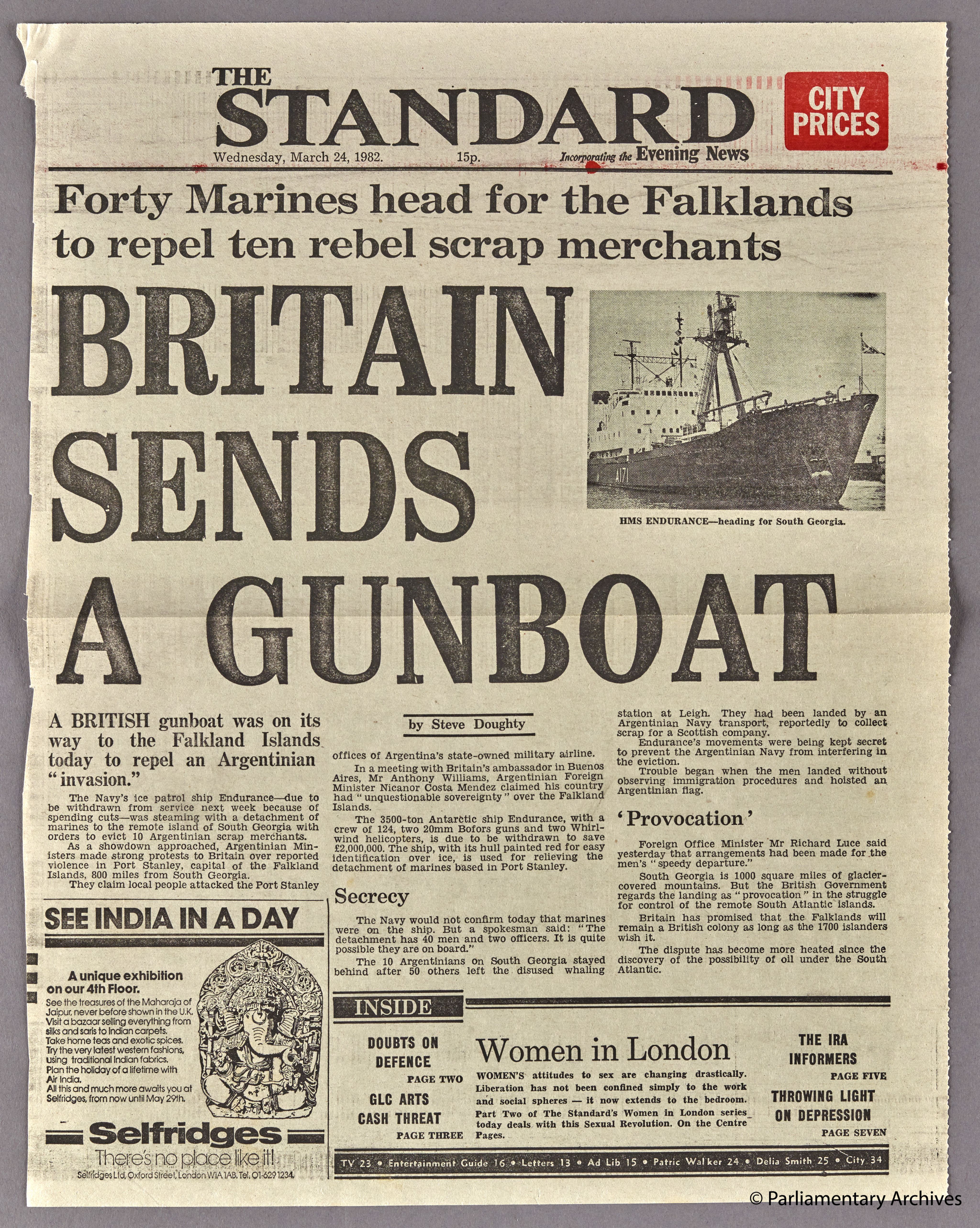
The Standard (24 March 1982). Parliamentary Archives, S/473
The Standard (24 March 1982). Parliamentary Archives, S/473
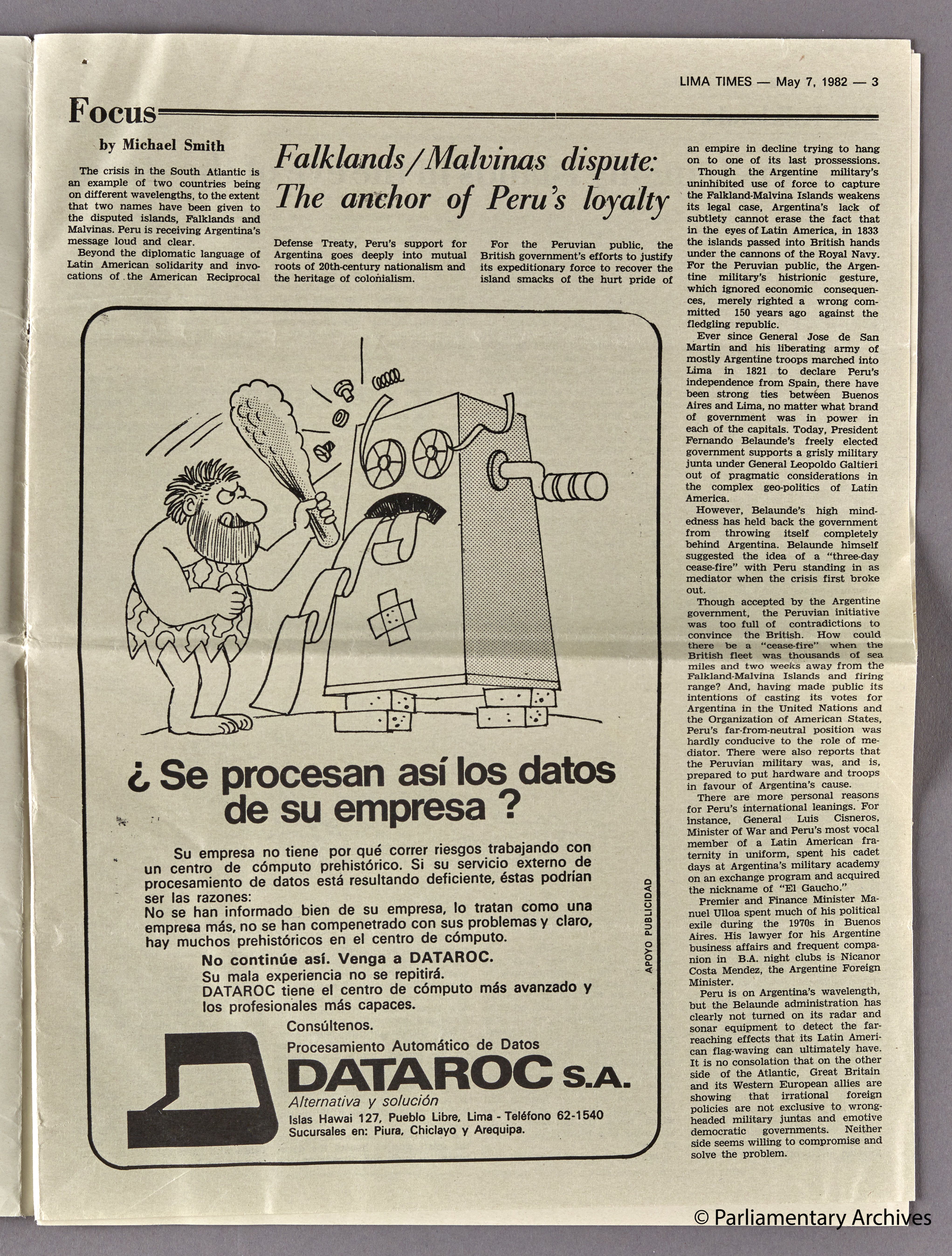
The Lima Times, English version (7th May 1982). Parliamentary Archives, S/473
The Lima Times, English version (7th May 1982). Parliamentary Archives, S/473
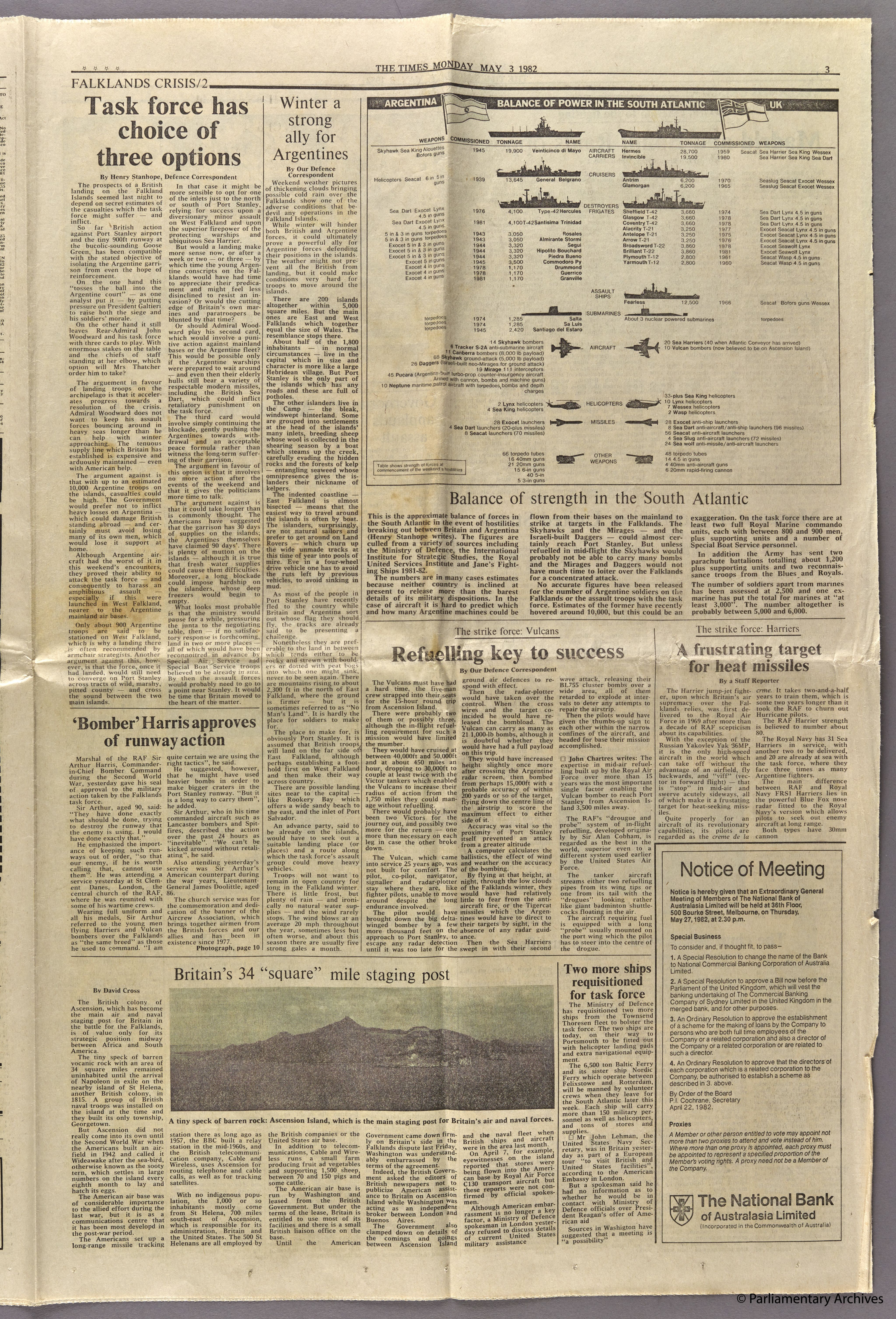
The Times (3rd May 1982). Parliamentary Archives, S/473
The Times (3rd May 1982). Parliamentary Archives, S/473
'The people of the Falkland Islands, like the people of the United Kingdom, are an island race. Their way of life is British; their allegiance is to the Crown. They are few in number, but they have the right to live in peace, to choose their own way of life and to determine their own allegiance.'
Margaret Thatcher, Prime Minister, 3 April 1982
'Even though the position and the circumstances of the people who live in the Falkland Islands are uppermost in our minds... there is the longer-term interest to ensure that foul and brutal aggression does not succeed in our world. If it does, there will be a danger not merely to the Falkland Islands, but to people all over this dangerous planet.'
Michael Foot, Leader of the Opposition, 3 April 1982
Parliamentary Clerks’ original notes from the emergency Saturday sitting, showing brief entries of the business of the House on Saturday 3 April 1982.
Lord Carrington resigned as Foreign Secretary on 5 April 1982, after the Saturday sitting.
Photograph of Lord Carrington, Foreign Secretary 1979-1982.
Francis Pym replaced Lord Carrington as Foreign Secretary.
Photograph of Francis Pym, Foreign Secretary (1982-1983).
Parliament Reflects
'Early this morning in Port Stanley, 74 days after the Falkland Islands were invaded, General Moore accepted from General Menendez the surrender of all the Argentine forces.'
Margaret Thatcher, Prime Minister, 15 June 1982.
'To unite and avoid endless post-mortems, will the Prime Minister institute discussions between the parties about the form of an inquiry which will have to take place?'
David Owen MP, 8 April 1982 .
Afterwards various parliamentary and other committees investigated the causes and impacts of the conflict. An all-party Parliamentary delegation visited the Falklands in November 1982.
This is the first colour photograph which shows the House of Commons in session, from 1986.
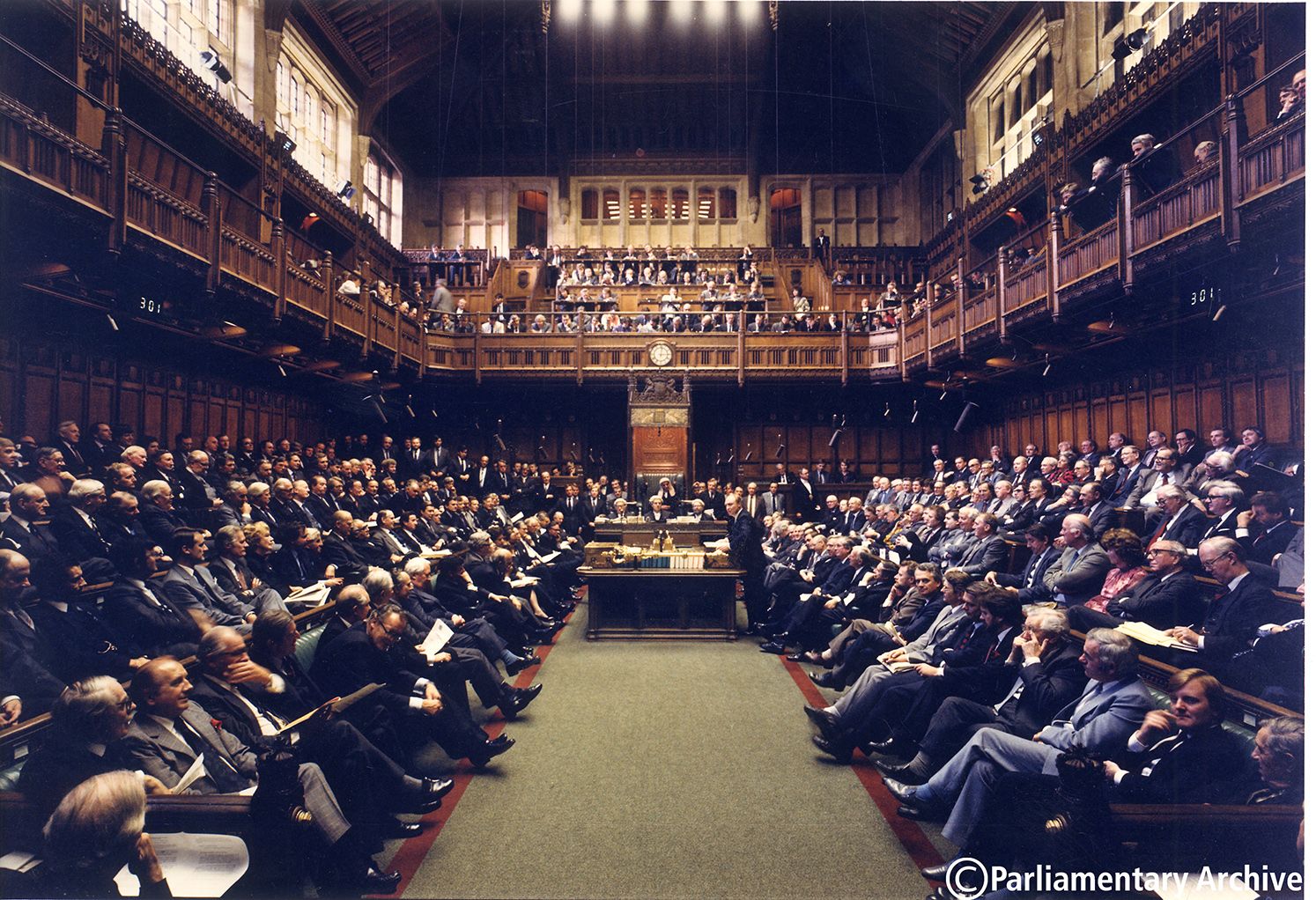
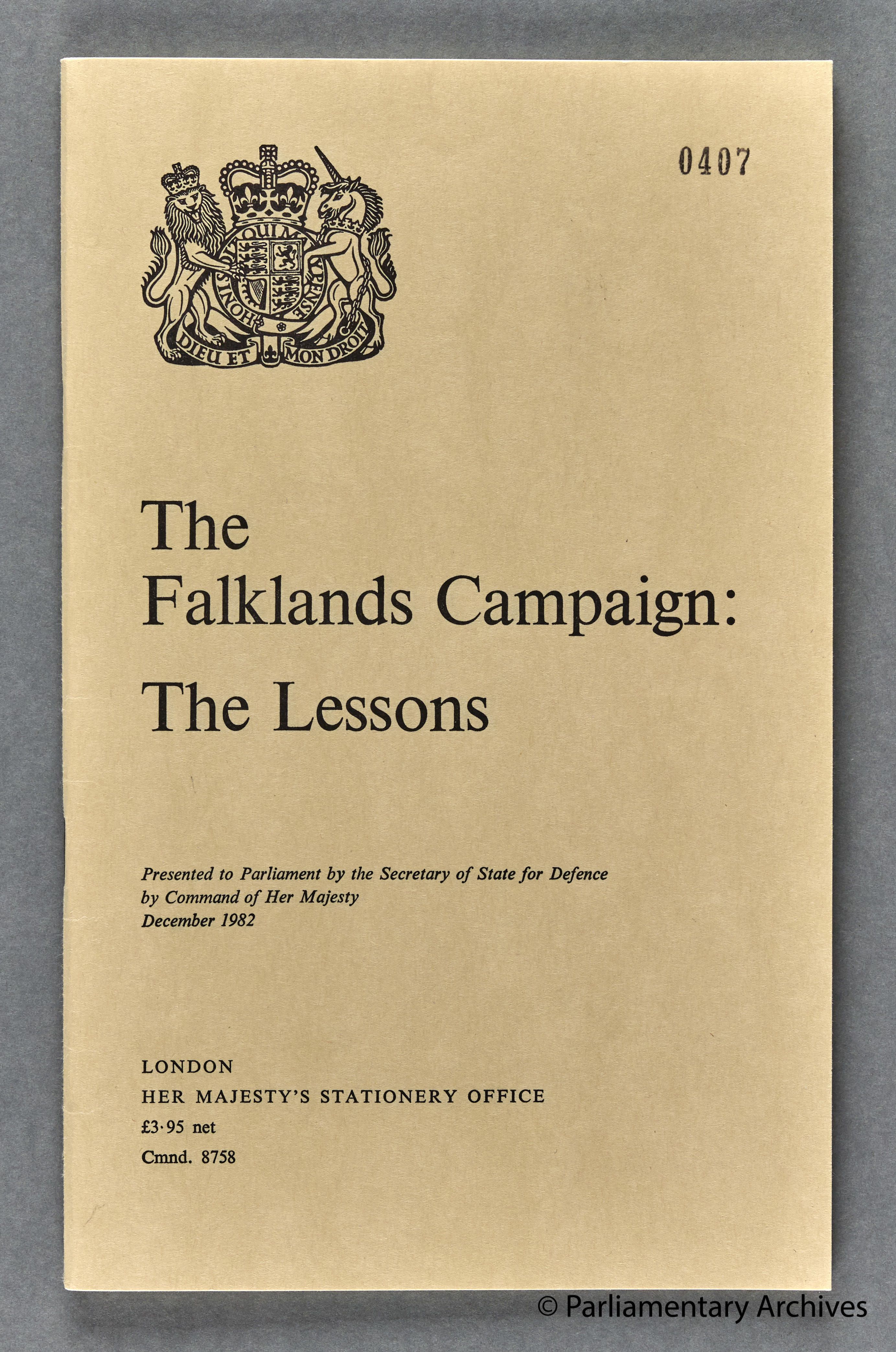
Subsequent reports included the Falkland Islands Review, which was presented to Parliament in January 1983. It was known as the Franks Report after its chair, Lord Franks.
Photograph of the Franks Committee. Left to right: Sir Patrick Nairne, Merlyn Rees, Lord Lever, Lord Franks, Lord Barber, Lord Watkinson.
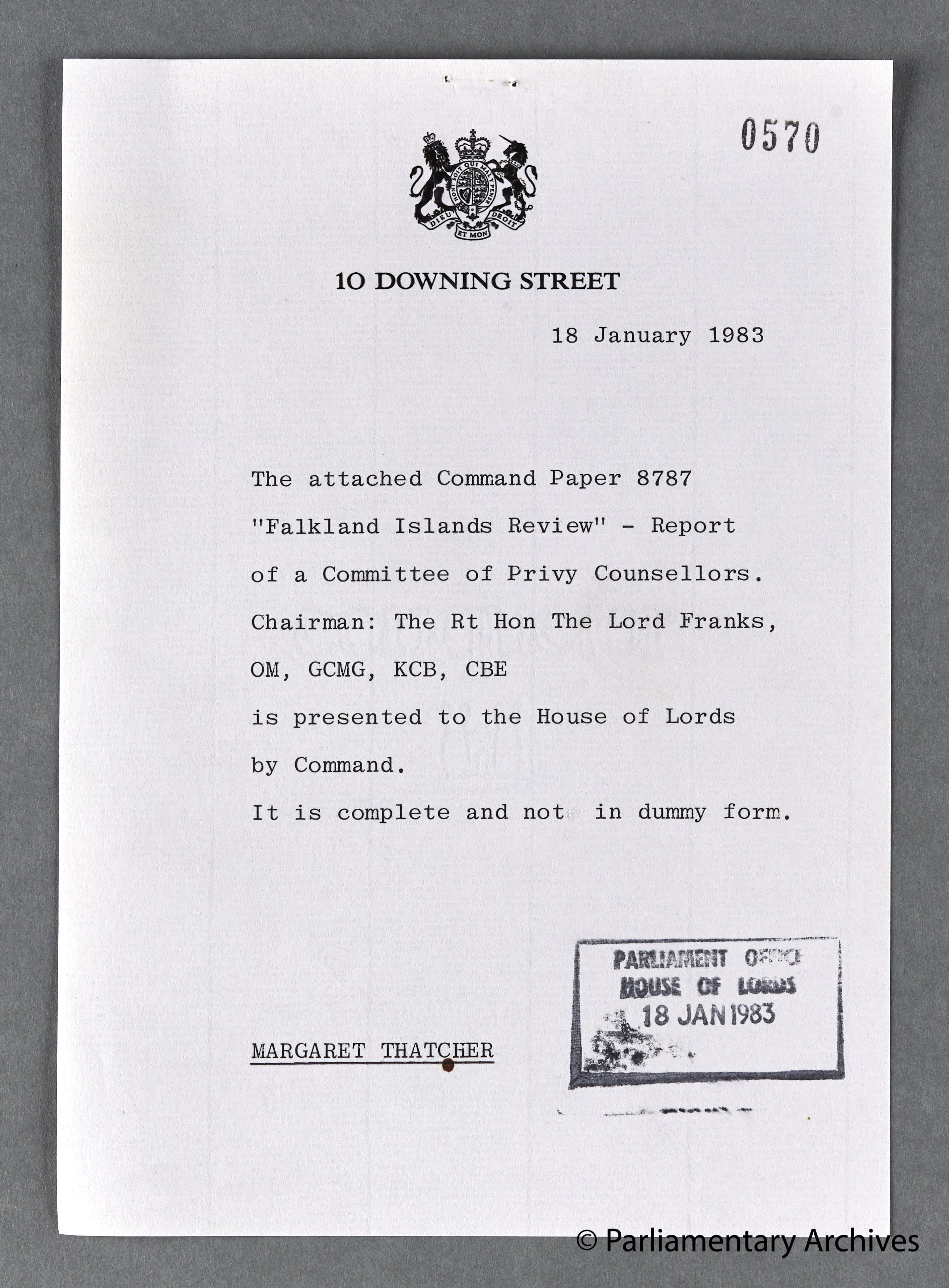
Covering letter from Prime Minister Margaret Thatcher for the Franks Report, 18 January 1983. Parliamentary Archives, HL/PO/JO/10/11/2162/570
Covering letter from Prime Minister Margaret Thatcher for the Franks Report, 18 January 1983. Parliamentary Archives, HL/PO/JO/10/11/2162/570
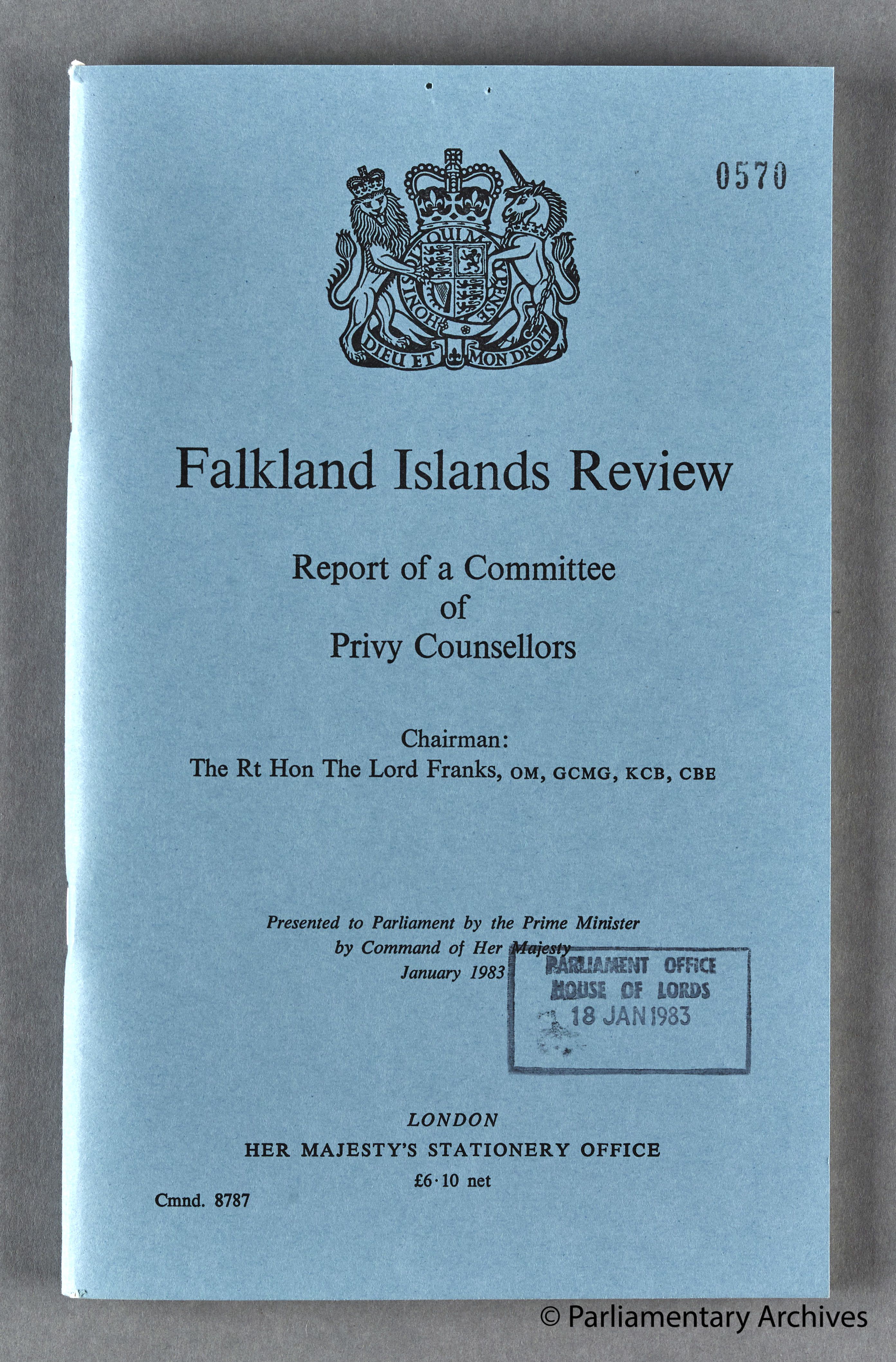
Falkland Islands Review, Report of the Committee of Privy Counsellors, known as the Franks Report, 18 January 1983. Parliamentary Archives, HL/PO/JO/10/11/2162/570
Falkland Islands Review, Report of the Committee of Privy Counsellors, known as the Franks Report, 18 January 1983. Parliamentary Archives, HL/PO/JO/10/11/2162/570
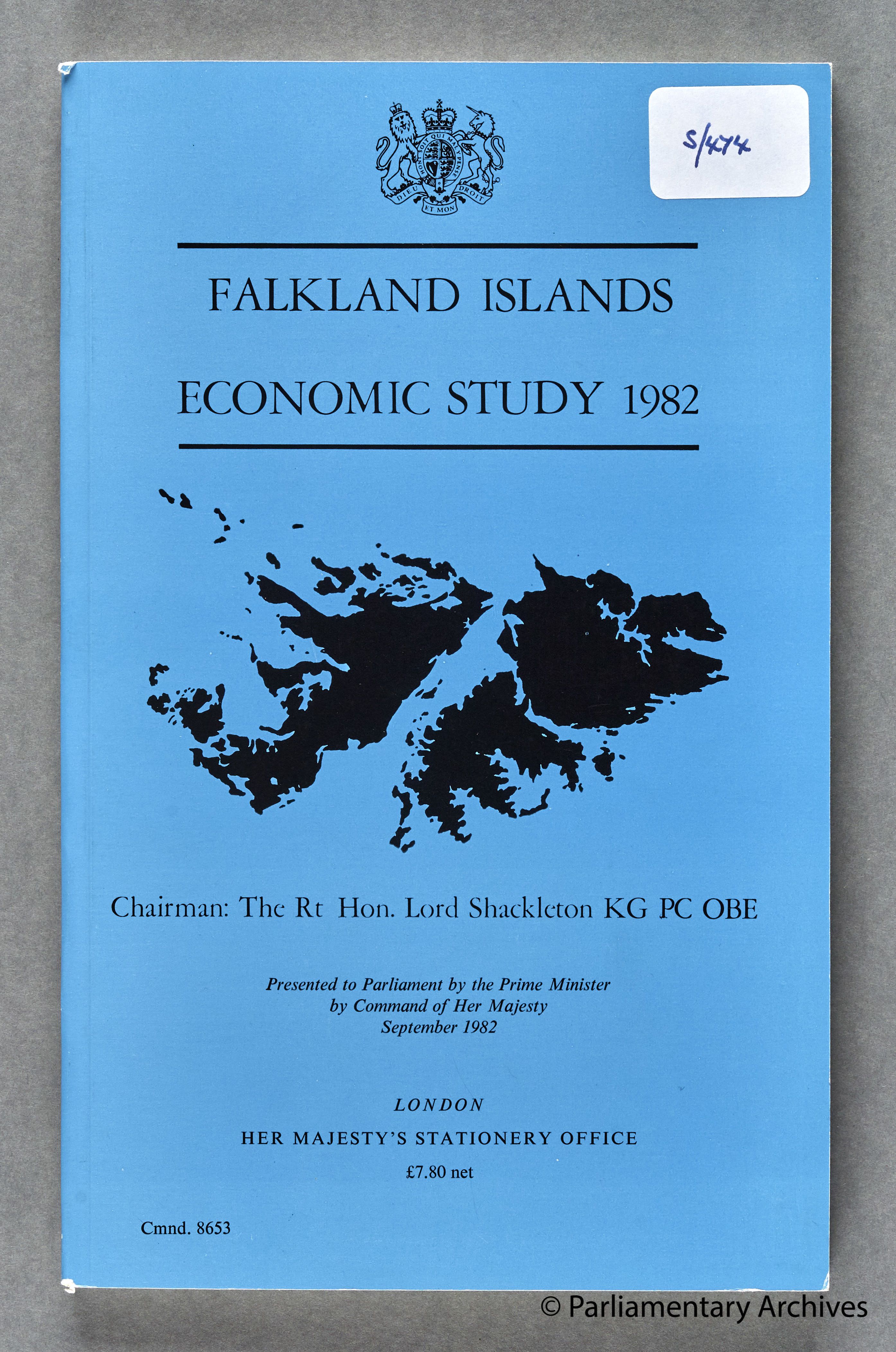
Falkland Islands Economic Study by Lord Shackleton, September 1982.
Falkland Islands Economic Study by Lord Shackleton, September 1982.
Lord Shackleton also updated his 1976 economic survey of the Falklands as a result of the conflict.
You can learn more about the Parliamentary Archives and its collections on the website.
